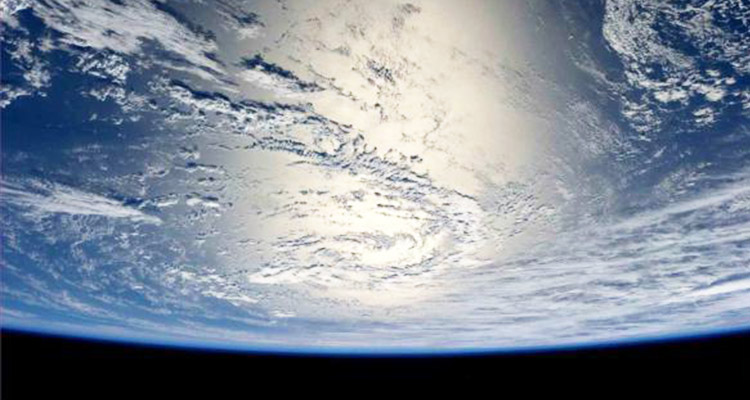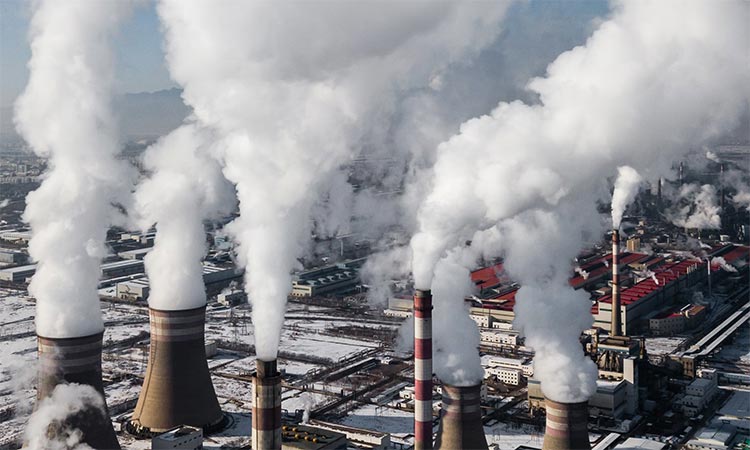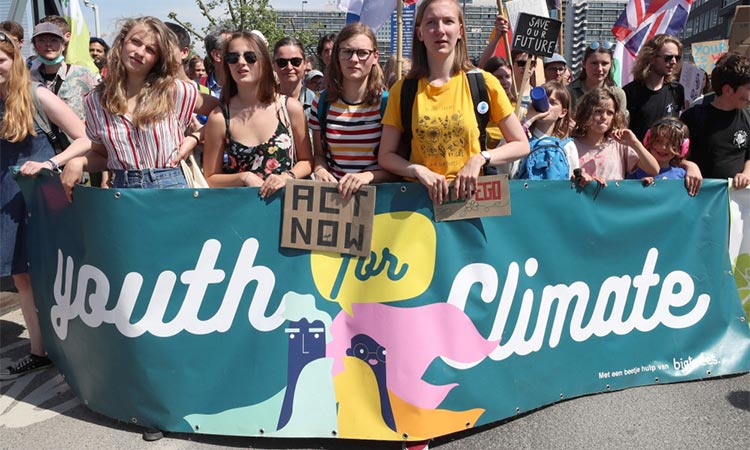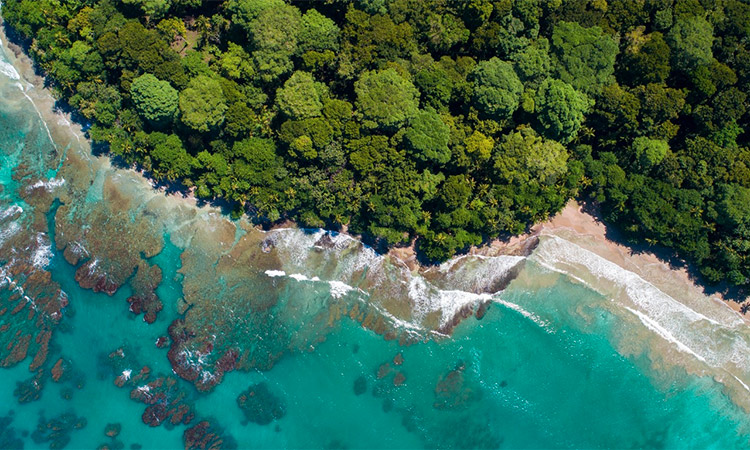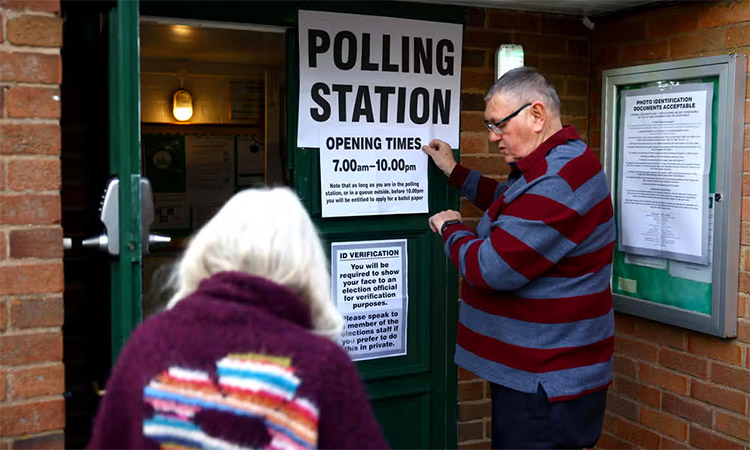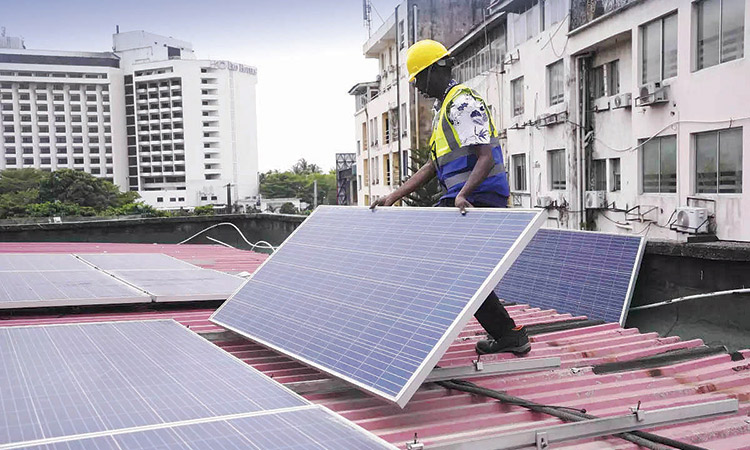Sorry kids, courts won’t save the planet
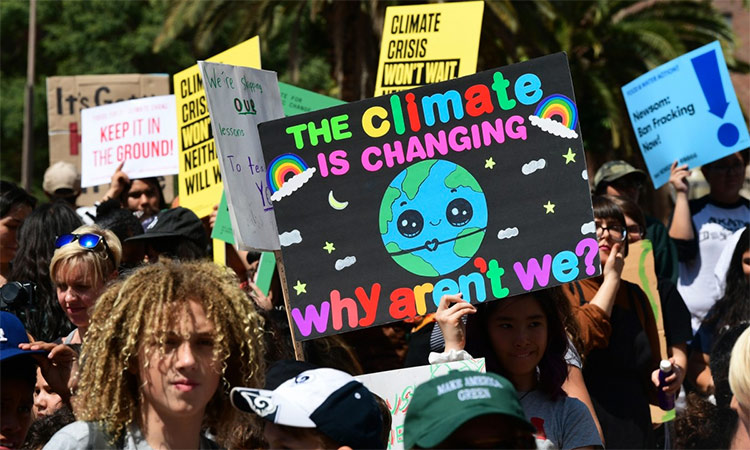
People hold placards during a rally in California demanding action to stop climate change.
Mark Gongloff, Tribune news Service
The decision sounds monumental: A Montana court has ruled that climate change is real and caused by humans and that governments owe their constituents’ children a clean environment. Surely this will eradicate the last traces of America’s climate denialism and accelerate the transition to a green-energy future.
Except … no. The Montana decision may sound as big as the local sky, but its practical implications are far narrower. It’s a win for climate activists, but a small one. Mainly, it’s a reminder that the global climate emergency is too complex for any one solution. Few, if any, will be crafted in courtrooms.
The Montana case arose from decrees by the state’s conservative legislature that government agencies must ignore climate change when making decisions, such as approving fossil-fuel exploration or new energy plants. This conveniently greased the skids for a new natural-gas plant to be built on the Yellowstone River over the objections of environmentalists and local residents.
A few years ago, representatives for a bunch of kids, today ranging in age from 5 to 22, sued the state over this. They argued that the refusal to consider the climate impacts of Montana’s fossil fuel-based economy violated the state’s constitution, which guarantees “a clean and healthful environment in Montana for present and future generations.”
This week, a judge ruled the kids were right. Environmentalists rejoiced.
But what the ruling means on a practical level is hazy at best. It won’t compel Montana to adopt its version of a Green New Deal, as state leaders had warned, or even change energy policy much at all. This is mainly because, in response to many state motions, the judge has winnowed down the relief the kids could seek in their suit.
The ruling also won’t usher in a new era of legal action against fossil-fuel companies for polluting the atmosphere. Plenty of those are already grinding through the courts. Ironically, in many of those cases, unlike the Montana legislature, everybody admits climate change is real and man-made — even the fossil-fuel companies. The fights in those cases are mainly about what legal liability those companies have.
What the Montana ruling will do is add to the growing consensus that the runaway emission of greenhouse gases is warming the planet, throwing the climate into chaos and threatening the well-being of current and future generations. It could at least force Montana’s legislature to stop pretending climate change isn’t happening. It might delay that natural-gas plant a bit.
And though Montana’s ruling doesn’t have the authority of, say, a U.S. Supreme Court decision, its existence makes life more awkward for any court that wants to take an opposing stance. Michael Gerrard, a Columbia law professor and environmental lawyer, noted there are a handful of other US states and about 150 countries with constitutional guarantees of healthy environments. All could now be taken to court for breaking those promises. If similar lawsuits can at least postpone new fossil-fuel projects, then that’s a little victory for the planet.
And little victories are the best anybody should expect from the courts. Most US voters and judges generally agree broad environmental policy and spending are the exclusive domain of elected politicians. So legal activists are chalking up wins with cases carefully tailored to ask for remedies small and specific enough that they don’t give judges the heebie-jeebies. Such a suit recently stopped a tree-burning energy plant in Hawaii, for example.
Every little bit helps. Countless bad decisions, big and small, by politicians, companies and voters over long decades got us into this mess. It will take almost as many good decisions to get us out of it. Even small victories add up.
